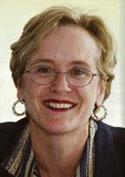Dr. Samuel K. W. Chu
University of Hong Kong
|
| Developing 21st century skills with inquiry learning: Collaborative teaching, social media and gamificationThis seminar is based on a book to be published by Springer Science & Business Media in 2014. The book is directed to readers who are doubtful about the conventional didactic teaching approach, and who have an open mind for exploring, experimenting with and putting new pedagogical approaches into investigation and practice. The content of the book is of interest to academic researchers, educators, parents and policy-makers who are concerned about and aware of the drastic changes of the 21st century world, which necessarily have resulted in the shift of skills and knowledge expected to be equipped by students. This seminar provides a preview of the book, covering both theoretical and empirical discussions on various innovative teaching and learning approaches implemented in schools in Asia, Europe and North America. The seminar includes details and findings of research studies that examined the pedagogical values of inquiry projects, collaborative teaching, use of social media and game-based learning in various school contexts, involving students of different subjects, age groups, cultural background and academic performance. An overview on the new educational goal, 21st century skills and the education frameworks around the world with a foci on 21st century skills education will be given to help audience understand the background of the research projects. The speaker will present documented opinions of students, teachers and parents on the investigated pedagogical approaches. A discussion of teaching strategies and schedules, teachers’ roles in the process and samples of assessment materials will also be included. Friday, November 1, 201310:30 a.m. to 11:30 a.m. Education Building, room 233 |
Dr. Martha Ferede
Harvard University
 | “More than Winning the Lottery” Refugee youth’s Academic Integration in Canadian UniversitiesWhat if there was a model of integrating refugees into a host country that also provided higher education access and social support? Since 1978, World University Service of Canada (WUSC), an Ottawa-based international development organization, has sponsored 1,355 refugee youth from the asylum countries of Kenya, Thailand, Syria, and Malawi and placed them directly into 61 of the nations university and college campuses. As much as resettlement into Canada and entry into university is a substantial improvement from a harsh refugee existence, this new life whereby refugee youth are thrust into demanding academic programs within weeks of arrival is not without its challenges. This talk will focus on research findings on the academic integration of 24 refugee youth resettled from 2007-2011: their experiences, motivations for course selection, trajectories, challenges, and the resources they employ to manage them. Martha K. Ferede is a mixed-methods researcher and consultant who specializes in international higher education policy and the mobility/integration of students and faculty. She recently completed her doctorate from Harvard University. Tuesday, November 5, 201312:00 p.m. to 1:15 p.m. Education Building, room 233 |
Dr. Steven Rytina
McGill University, Department of Sociology
|
| Sticky Struggles: A talk on social stratification based on networksSticky struggles sum up a new approach to social stratification based on networks. Networks are taken as probabilities of renewal of interaction, not bonds that are present/absent. Accumulated co-learning with specific others motivates renewal of ties and discourages rupture. Stratification is circumscribed by network evolution which can be approximated by a first order markov process. This entails the emergence of a macro-structure, a principle dimension of stratification. Re-analysis of occupational mobility data provides ample empirical support. Tuesday, November 19, 201312:00 p.m. to 1:15 p.m. Education Building, room 233 |
Drs. Céline Le Bourdais and Jean Poirier
McGill University & Université de Montréal
|
| Which Data to Answer Which Kind of Questions? Taking Advantage of QICSS ResoucresSince 2006, McGill researchers can freely access on campus nearly a hundred of Statistics Canada micro-detailed databases in the Quebec Interuniversity Centre for Social Statistics (QICSS) Laboratory in Peterson Hall. Several of these databases allow researchers to explore issues relevant to the fields of educational psychology and learning sciences. The goal of this presentation is to provide an overview of:
This seminar will also be an opportunity to identify the services and activities that could be developed by QICSS to better respond to the needs and expectations of faculty and graduate students involved in the Learning Sciences program in Educational and Counselling Psychology. Tuesday, December 3, 201312:00 p.m. to 1:15 p.m. Education Building, room 233 |


